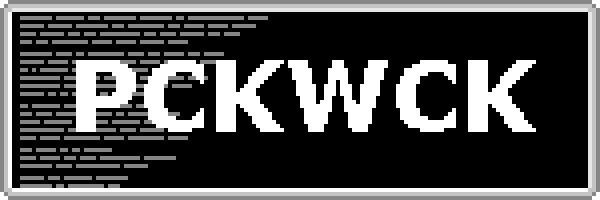Fleeting Wonders: Writing a Novel in The Most Terrifying Way Possible

“You can have no sense of structure, no sense of shape,” says Cohen. He’s just figuring it out as he goes. (Photo: Mark Carrel/shutterstock.com)
“You should know that I’m speaking to you completely exhausted and it’s only the first day.”
That’s Joshua Cohen, who’s writing a novel in front of a live internet audience—for five hours a day, five straight days. Day Two begins today at 1 p.m. EST.
Go to pckwck.com and you can watch Cohen’s sentences slowly shimmy across the screen, then wait as he considers his next words or names his next character in this serialized work of fiction based loosely off Charles Dickens’ Pickwick Papers. It’s entirely on the spot—not just live typing, but live writing, sometimes even with streaming video of Cohen at home with a cigarette dangling from his mouth.
“The point of the exercise is not to judge how well or poorly it goes, but to see what happens,” Cohen says on the phone after surviving Day One. “For me, it’s an enormously scary thing.”
The novel also offers live commenting; anyone can leave their thoughts or start a discussion on the sidebar. Though Cohen is only writing in real-time during the set five-hour window, the chatroom stays active around the clock. And if you thought that readers were there to discuss Dickensian themes or offer literary analyses, trash that notion. The first day’s side tab was a cesspool of sexual jokes, empty and offensive comments, and general jeering.

Joshua Cohen, in real life. (Photo: kellywritershouse/flickr)
Cohen doesn’t look at the comments—doesn’t have time to, he says.
“It’s to give something of a comment on culture working, right? And on the speed of culture, and on the rate of culture—the pressure that’s put on people economically, the pressure that’s put on artists with regard to the internet, the interrogating idea of posterity, ideas of ego and vanity,” he says, his voice tired yet resolute.
The novel, copyedited and accompanied by select comments and data, will go offline after the five days of live-writing, and appear in print by December. Cohen’s project has been supported and published by Useless Press, and all proceeds will go to the ACLU.
Cohen’s most recent (print) novel, Book of Numbers, explores how technology permeates our lives, our speech, and our senses of self. The 2015 book has been described as “the single best novel yet written about what it means to remain human in the Internet Era” by novelist Adam Ross. Another reviewer called it “narrative as rich as the web.”
With PCKWCK, Cohen continues to explore the online landscape. “It’s trying to write toward a world in which the most casual utterances, the most offensive, sexist, racist, anti-Semitic utterance has a greater hope of living forever than some poetry, because of the technology involved.”

PCKWCK: a novel written online in real time over five days. (Image: pckwck.com)
Of course, there’s also writing involved—and PCKWCK has some good and thought-provoking stuff. Take this passage, for example, which makes the reader intimately aware of how Cohen is writing in real time:
A waitress came out in jeans and a croptop: the tourist waitress, the foreign tourist waitress—and, spotting me, profiling me, she retreated inside and returned a heartskip later purdaed in a tablecloth, her lemonlime sneakers still showing beneath. I guess she was asking me what I wanted. I was still wondering what this sentence wanted—what word.
But again, none of the commenters seem to have noticed the lemonlime sneakers, or come up with the word that sentence wanted. Instead, they were mostly busy throwing out things like: “NO MORE SEXY FUNK” or “hey can you name one of your characters Dickless?”
If you’re trying to find a more reflective comment, you’ll have to settle with these (in no particular order):
Anonymous: oHH! i get it. the internet and literature combined are like WOW
Peniswrinkle: Add a hispanic character
Ant: Add a character
Anonymous: let’s face it, this is pointless, bizarre, and has nothing to do with Pickwick. What is even happening
Anonymous: He only writes between 1pm-6pm EST
Anonymous: asafafaf
Anonymous: dafuq
Anonymous: this is gay
PCKWCK has so far introduced a group of military contractors who are interrogating and torturing characters with Arab-sounding names. The author hopes that the form of some of these interrogations will register in the minds of people who seek to comment.
“I’m interested in finding out whether or not there can be a dialogue, or if it’s going to be antagonism,” Cohen says. “I’m not making a moral equivalency between commentators and torturers, but trying to–in some way–show the comment world to itself.” He says that as PCKWCK continues, he hopes that will happen. “They can become my torturers,” he says. “That speech is not physical torture, but I wanted to draw this very hazy equivalency, and though it’s hazy it does seem real, because I think that there is an aggression and a violence in discourse online.”
Cohen says he wanted to see if he could write something that could be a companion to such discourse and then be an adversary to it. All the while, he’s improvising a novel over the course of 25 hours.
Every day, we track down a fleeting wonder—something amazing that’s only happening right now. Have a tip for us? Tell us about it! Send your temporary miracles to [email protected].












Follow us on Twitter to get the latest on the world's hidden wonders.
Like us on Facebook to get the latest on the world's hidden wonders.
Follow us on Twitter Like us on Facebook